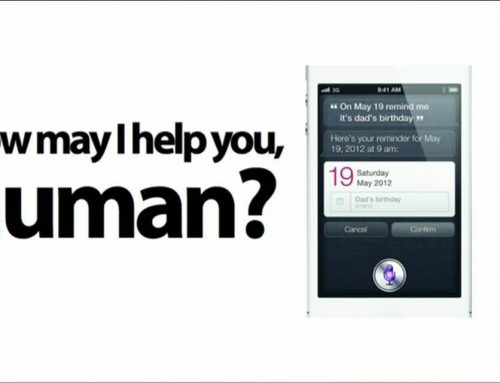Yelp, Branding, & Business Relationships

BA Work at the Maker Faire: NC in 2014
People have mixed feelings about Yelp and it certainly gets its fair attention in the news from the press regarding reviews, social media, and even debates about the First Amendment. I’m a little biased because I’ve been an Elite Yelper since 2010 and because, from time to time, I worked as a Brand Ambassador (BA) from 2012 to 2014. Because I’ve been involved for so long, people often turn to me to explain “how it works.” Yelp was founded in 2004, to help people find out more about local businesses and also allow users to contribute to a platform sharing their experiences. Despite my interest in social media and digital writing experience – marketing and writing is actually what I do, I had never heard about Yelp until spring 2010. Obviously, I cannot and will not give away all my secrets, but I do think it’s important for people to have a better understanding of how Yelp works both from the side of the consumers and the business owners.

BA Live Tweeting at the Oyster Shellebration in 2014
When I worked as a BA, I’d attend community events on behalf of Yelp – celebrations at the Chef’s Academy, a booth at the Maker Faire: NC, a booth for an event at the Museum of Natural Sciences, and live tweeting at a NC Coast Oyster Shellebration. At these events, I would explain what Yelp was, encourage users to create a Yelp account, download the app, sign up for the Weekly Yelp newsletter, engage with them by playing some sort of game and award them with Yelp schwag. My usual explanation was that “Yelp is a site where everyday people write reviews about businesses, such as restaurants, dentists, hair salons, and other businesses.”
Yelp as a Community
What some people may not realize is that Yelp serves as a community hub for some users as it turns into an online forum with message boards, a social media tool to “add friends” and send compliments or private messages, and also a way of organizing this content. Users create and develop their free profiles to depict their personality, interests, and even add photos with their name. Profiles which are developed and have a real name, versus a pseudonym, are seen as having more street cred. Reviews are enhanced by photos and being included in different user created thematic lists. Reviews can also be updated as users return to those businesses again and care to share about new experiences. Additionally, when users use the app to “check in” they build up their activity and are sometimes rewarded with discounts and schwag. Users – both everyday Yelpers and business owners – can post and/or host events to better market their business activity and community involvement. What people don’t realize is that Yelp is more than just a site where people just go online to rant or rave about an experience they had at a business. It’s a community where people connect over their experiences, with a Community Manager to bring all the Yelpers together at events and promote the brand in a region. Since becoming Elite in 2010, I’ve had the pleasure of working with and getting to know three amazing CM’s: Christina G., Lauryn C., and Holly K.

Elite Yelper Lindsay S. & CM Lauryn C in 2016
People who dive in deep and become regular users can apply to become a part of the Yelp Elite Squad. Many people wonder what it takes to become Elite, so for that I’d recommend you take a look at the Yelp Elite Squad Terms of Membership to explore for yourself.
How Businesses Can Use Yelp

BA at the Chef’s Academy in 2013
There is a whole other world of Yelp for Business Owners. When I was out working as a BA, I’d be asked how businesses can use Yelp. Every business owner (or manager) can setup a free account, similar to a Facebook business page, to post photos and message their customers. Similarly, users can create business pages for businesses they want to review, if there is not already a page, but the businesses should really be taking advantage of this free opportunity for a more expansive digital presence. Oftentimes, when you search Google for a business, not only will their website come up, but so will their Yelp business page. Business owners have the opportunity to create a description, upload pictures, and share business information related to hours, contact info, their website, price-range, and a menu, if applicable. Like business owners on Facebook, Yelp business page owners can engage with their users. This usually comes in the form of responding publicly to a review, but sometimes allows for a private message. Business owners should avoid responding negatively to reviews. It only makes them look bad. Yelp is a free site, but it makes money selling ads to business owners. Despite paying for ads, paying advertisers can never change or re-order their reviews.
Few business owners or users understand how reviews are ordered – sometimes they’re hidden and sometimes they rank higher. From Yelp, “Yelp uses automated software to recommend the most helpful and reliable reviews for the Yelp community among the millions we get. The software looks at dozens of different signals, including various measures of quality, reliability, and activity on Yelp. The process has nothing to do with whether a business advertises on Yelp or not. Learn more here.” This sorting process can be both good and bad for the business owners and reviewers. Reviewers who only write a review or two, often from being solicited, will oftentimes have their reviews hidden. This is because they’re not seen as consistent users and thus, it could be spammy. That’s good for businesses if it’s a bad “rant” review. It’s bad for businesses if it’s a really good review they’d like to stay featured.
Ranking Reviews & The Relationship Beyond
Since I’m an Elite reviewer, my reviews are going to rank higher on the site. I voluntarily write reviews because sharing my experiences and telling stories is a passion. Keep in mind though that it’s against the content guidelines to add reviews of your own business, include promotional content, and inappropriate content – language, images, hate speech, etc. Reviews should also not include rants about employment practices or political affiliations. I’ve seen reviews that were about a business, based upon something someone read in the news, be removed. Reviews should always be an accurate depiction of an experience with a business.
Users collect compliments for recognition of their reviews, but the ultimate prize for both a Yelper and business is to receive the coveted “Review of the Day” (ROTD) award. Waking up to having a review you wrote be featured on the regional homepage leads to numerous compliments and essentially being the “Student of the Day.” Curious about what kind of reviews make the cut? Check out my list of Reviews of the Day. For a business, it’s stellar recognition too since your business will be on the right sidebar on the homepage for an entire 24 hours. How these ROTD awards are given out is beyond me so I’m afraid I can’t share that process.
But, I can say that Yelp is an online tool that people must not neglect. Marketing and PR are no longer in the hands of the business owner on signs, a newsletter in the mail, and ads in the newspaper. It’s a two-way digital street between the consumers who have an active hand in expressing themselves online and it’s a moment for business owners to be proactive in their online presence and engagement. Just stick to the good rather than fixating on the bad experiences and there will be a long-lasting legacy for both the reviewing Yelper and the business owner.




Leave A Comment
You must be logged in to post a comment.